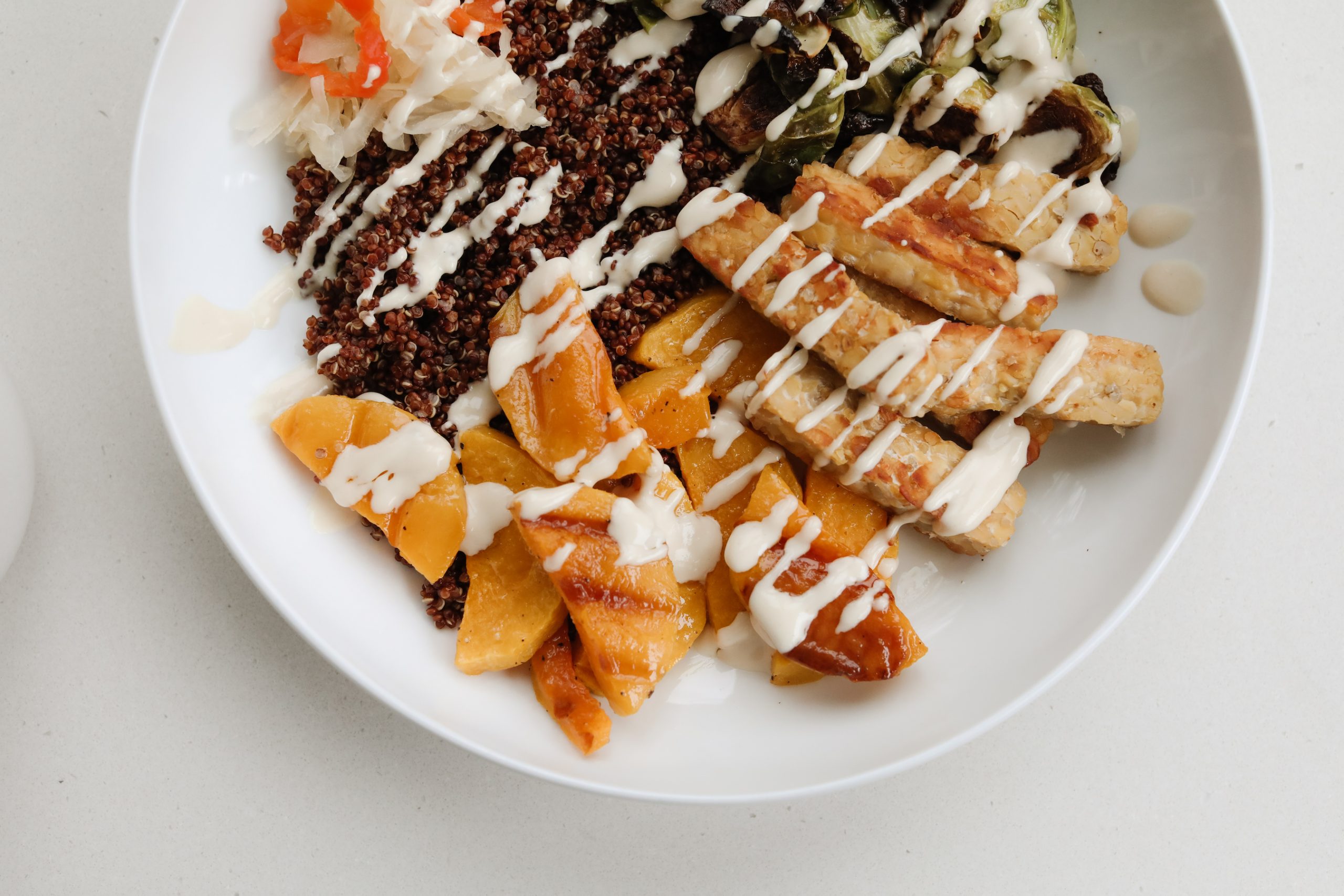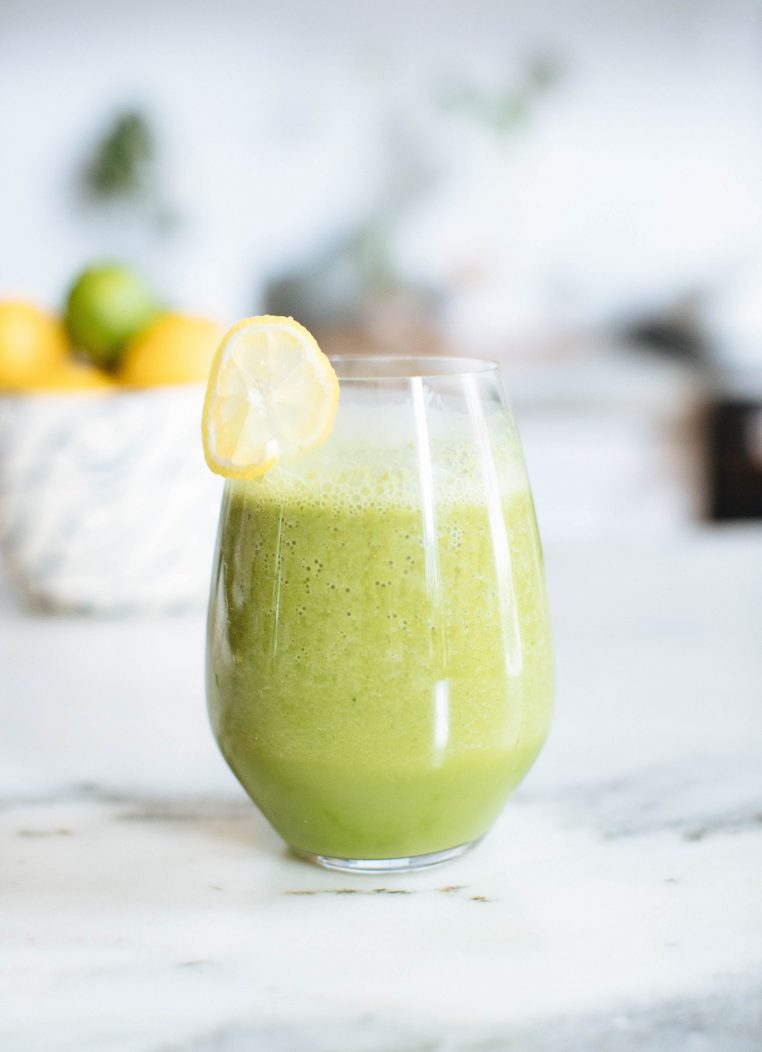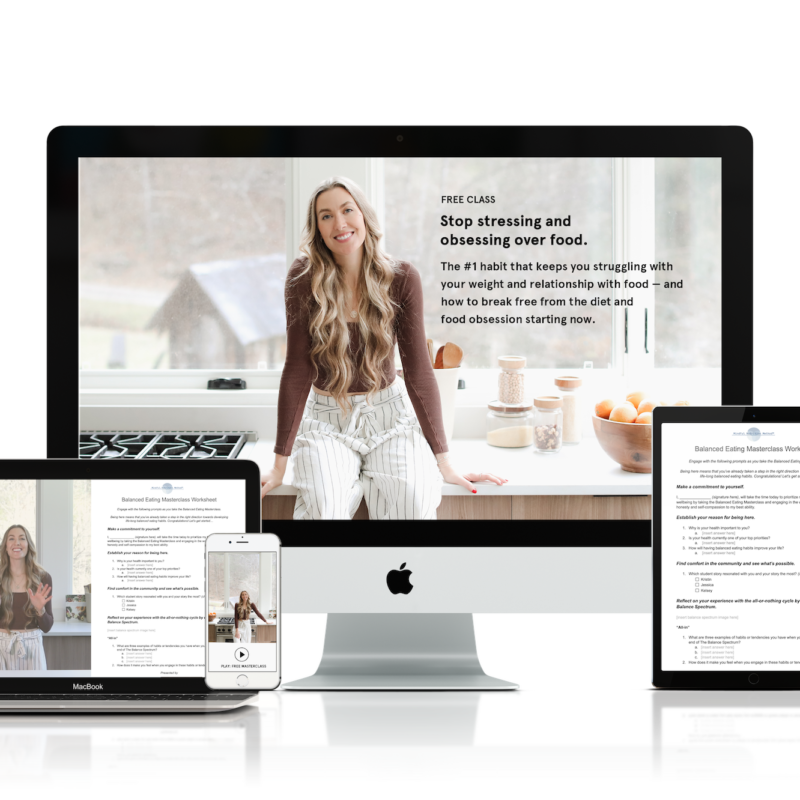Learn what you should focus on to finally stop struggling with your weight and develop a balanced relationship with food.
Should I be eating a certain amount of protein? Or maybe I should drink more water daily? How often should I enjoy sweets? Am I supposed to be eating at a certain time of day?
If you’ve been struggling with your weight, chances are you’ve asked yourself one or more of these questions at one point in time on your journey. First off, you’re not alone in that! The health and wellness space is jam-packed with information on how to reach your weight goals. From how-to guides to strict diets, 30-day cleanses and so much more.
Unfortunately, despite the plethora of options, they’re almost always similar ideations of the same concept. A concept that doesn’t promote long-term, sustainable change. So what are we left with after trying these options? The end result is usually a negative relationship with food and a perpetual struggle with weight.
Fortunately, you don’t have to stay in this cycle and repeat the process once more. Keep reading to learn what you can focus on today to stop struggling with your weight and feel peace with food and your body.
5 Steps To Stop Struggling With Your Weight
When you’re looking to get out of the diet cycle and finally end your struggle, it can be so overwhelming to think that you all of a sudden have to reframe every thought you’ve ever had about weight and health. It can seem nearly impossible!
To help you with this, here I’m going to talk about the first 5 things you should focus on. These 5 shifts, concepts, and habits are approachable and feasible so you can get started with confidence.
Let’s dive right in!
Shift Your Lens of Focus To Long-term Thinking
Think about all of the different diets you’ve been on and the changes you’ve made in the past. Now think about what they all have in common. I’m willing to bet to some degree, you’re thinking about how they all ask you to nearly completely change your entire diet and lifestyle at the drop of a hat. And how they’re all focussed on changing the number on the scale as quickly as possible.
There’s no slow, gradual building of habits. Or steady implementation of actionable steps you can take to reach your end-game goal. This is because all of these diets and trends are focused on short-term results only. They aren’t concerned with how long they’ll last or how they’ll make you feel 6 months from now.
Doesn’t exactly sound healthy or feasible when it’s put that way, does it?
Shift your lens of focus to long-term thinking. Instead of focussing on how quickly you can make changes to see results immediately, take a moment to think about what you want your health to look like in the future. A year from now, two years from now – what does your vision of health look like?
Focus on that first. Then, you can start to slowly but surely build your knowledge and your habits to get you to that goal. Instead of starting and stopping 5 new diets that all lead you back to square one by the end of the year, you can narrow your focus and really be intentional about implementing new habits that will get you to your long-term vision of health.
Tune In To Your Body’s Cues And Abide By Them
Now that we’ve shifted our overall mindset and outlook, let’s talk about the day-to-day.
All-day long, every single day, your body is communicating with you. It’s telling you how it feels, what’s working well, what isn’t working well, as well as what in needs. These are your hunger cues, satiety cues, stress signals, and emotions.
When we tune into these cues, address them, and abide by them, we’re able to gracefully flow from meal to meal with ease. We eat what we want to have because we want to have it, and eat amounts that feel good for us. We’re able to address stress and emotions appropriately when applicable.
The problem here is that most diets and trends out there teach you to ignore these signs, to stop listening to them, and override them. To eat at a certain time, to only eat the specific amount allotted regardless of how you feel or what you’re body is tasked with that particular day or week. And over time, this can lead to food guilt, stress, confusion, and exhaustion.
Take some time to focus on yourself and what your body needs. The better you get to know it and work with it, the easier it will be to stop struggling with your weight and find balance.
Build Balanced Meals Whenever You Can
As we’re focussing on long-term consistency and starting to work with our bodies instead of against them, what are we actually eating this whole time?
The Foundational Five is my fool-proof system for simplifying nutrition and making it feasible and easy for you to build nourishing, satiating meals with confidence. Having confidence when building meals is key for you to stop struggling with your weight and make peace with food. Without it, you’re constantly unsure of yourself, making you more susceptible to the next diet or trend you’re presented with.
When building meals, pull up this quick formula for reference: Protein + Starchy and Carbohydrates + Non-Starchy Carbohydrates + Fat + Flavor Factor. You can even take a quick inventory of your usual intake and favorite foods to determine which categories of the formula they all fall under. In time and with practice, you won’t need to pull it up! Building meals like this will feel like second nature.
Seek Out Your Balanced Weight To Stop Struggling With Your Weight
When we’re struggling with our weight, the scale is usually our primary indicator of success. More often than not, as long as that scale goes down, we feel like we’re winning. No matter what we do to get there. The problem with this is that it sets us up to fail. Our methods are never maintainable or sustainable, so we’re left struggling with our weight time and time again.
Instead of focussing on unconditional weight loss, focus on finding your balanced weight instead.
A balanced weight isn’t determined by the number on the scale—a balanced weight encompasses far more than just weight.
Your balanced weight is the physical state at which you are embodying balanced eating habits, a mindful mindset about food, and a positive relationship to food and your body. It may even change depending on your unique stage of life.
In this balanced embodiment, you’re able to experience enjoyment with your food while prioritizing nourishment for your body by intentionally practicing balance with your food choices. It’s where you’re mindfully eating, where you’re listening and taking intentional action related to your hunger, satiety, and satisfaction cues.
It’s where you feel confident and comfortable in your own skin, where you’re freely enjoying food and drinks out with your friends, and also really enjoying a Foundational Five nourish meal.
It’s having zero stress around food and endless confidence in yourself around your eating habits. It’s when you’re able to experience self-confidence and practice self-compassion while still making shifts and changes to your current habits and routines.
When you achieve your balanced weight, you never have to struggle with your weight again.
Prioritize Both Nourishment And Enjoyment
Lastly, we need to find a happy medium between the nourishment and enjoyment of food. Food is meant to nourish our bodies, and it’s meant to be enjoyable to eat. So why is it so difficult for us to simply do both with ease?
Once again, diets teach us that there are foods that we “should” eat because they’re nourishing, and there are foods that we “should not” eat because they’re only enjoyment-based and not nourishing enough. The reality is, this couldn’t be further from the truth. I know you may be skeptical, but trust me on this one! I am a Registered Dietitian after all.
When we try to be “good” and only eat “nourishing” foods, we push ourselves and deprive ourselves so much that eventually, we simply can’t do it anymore. And because of the extremes we took to be “good”, “clean”, or “on track”, we unintentionally and inadvertently go to the same extreme, only on the opposite end of the spectrum. Towards enjoyment-only this time.
When we swing all the way over to enjoyment-only, or the “all-out” end of the spectrum, if you will, we often experience a loss of control, mindless eating, food guilt, and food stress. Eventually, once more, we can’t do it anymore, and the pendulum swings right back over to the opposing extreme, nourishment-only.
See where I’m going with this? Choosing one or the other doesn’t work. Extremes don’t work. This is short-term, quick-fix thinking. Not long-term, consistent thinking. Instead of abiding by one or the other, learn to have a balance of both that works uniquely well for you.
Find Balance and Stop Struggling With Your Weight For Good
Give these steps a try. Start with one concept, apply it to your life, get comfortable with it, then take the next step to apply the next one. Before you know it, you’ll be on your way to a brand new, balanced relationship with food!
With that said, we all need a little extra guidance and support sometimes. If you’re one of those people, and you would like to hear more about this topic, I know exactly what you need.
Sign up to watch my free masterclass today, where you’ll learn about the #1 Habit That Keeps You Struggling With Your Weight and Relationship With Food — And How To Break Free From The Diet And Food Obsession Starting Now.
You don’t need to stress and obsess about food. There is a better way, and yes it’s possible to cultivate a positive relationship with food! Join this free balanced eating masterclass to learn how.










